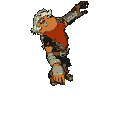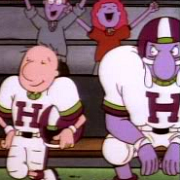|
80k posted:chiyosdad, I'd recommend going to some local music shops and trying them out there. You also might see some decent used Yamaha digital pianos (like the P-90 or P-120) close to your price-range on craigslist. For lowest price, the Casio PX-200 or PX-320 is pretty good value. For medium-price (around a grand, or cheaper used), I'd be looking at the Yamaha's. For higher-price (over a grand), I'd look into the Rolands. So taking the advice from this thread, I've roped a piano buddy into going shopping with me. However, I'm not sure where to go. I searched for piano on google maps near where I live and found a bunch of places that seem to sell real pianos but don't say anything about digital pianos. Can someone help me out here? I live in West LA (90024).
|
|
|
|

|
| # ? Apr 26, 2024 00:00 |
|
Should I try not to look at my hands/the keys while I'm practicing?
|
|
|
|
Monocular posted:Should I try not to look at my hands/the keys while I'm practicing? No, that comes naturally. And really, unless you're sight reading or needing cues from band members/ directors why shouldn't you look at your hands. I used to always need to look at my hands. As I continued playing though that was no longer necessary. So don't worry about it. It will come. 
|
|
|
|
Alizee posted:No, that comes naturally. And really, unless you're sight reading or needing cues from band members/ directors why shouldn't you look at your hands. I know it's something that just takes time, because it came to me eventually on the guitar, but I don't suppose you have any brilliant tips for playing-without-looking on a piano? Sight reading is pretty much the only kind of piano playing I do these days.
|
|
|
|
el Trentoro posted:I know it's something that just takes time, because it came to me eventually on the guitar, but I don't suppose you have any brilliant tips for playing-without-looking on a piano? Sight reading is pretty much the only kind of piano playing I do these days. Just force yourself not to look, and feel your way around the keys until you find the right ones. It's frustrating but if you keep at it, you'll get much better. I disagree with Alizee in that for some people, it does take effort to break the habit of looking at your hands. And I think it's absolutely worthwhile to try not to look at your hands.
|
|
|
|
el Trentoro posted:I know it's something that just takes time, because it came to me eventually on the guitar, but I don't suppose you have any brilliant tips for playing-without-looking on a piano? Sight reading is pretty much the only kind of piano playing I do these days. Maybe start forcing yourself to not look while playing some easy pieces (ie. something in C where you don't have to move your hands), and move up from there.
|
|
|
|
So I went to a Guitar Center today. Apparently they also sell electronic pianos. One of their models was one I had picked out online, so that was good. But other than that, they had kind of a small selection. What are names of some other stores that would have this stuff?
|
|
|
|
Sam Ash has a pretty great digital piano selection. Other than that, though, I'd go to regular ol' piano dealers. Chances are if they deal in new pianos, they probably deal in digital ones also.
|
|
|
|
Really though, you have to take not looking into context. If you're playing a song in which the notes move within finger reach well there's really no reason to look down once you start. But if you are playing big sweeping octave passages or sight reading something with a bass line with jumps of 10ths well then you should look down.
|
|
|
|
ShinAli posted:Sam Ash has a pretty great digital piano selection. Other than that, though, I'd go to regular ol' piano dealers. Chances are if they deal in new pianos, they probably deal in digital ones also. Thanks, I'll check it out. On another note (  ), I'm browsing through craigslist ads and I keep seeing the word sacrifice used like it's lingo. What does it mean? ), I'm browsing through craigslist ads and I keep seeing the word sacrifice used like it's lingo. What does it mean?
|
|
|
|
Rad, I thought this thread was dead. Had my casio thing with weighted keys for a month or so now, finally found a teacher and loving it, I never thought learning theory would be fun but it's very satisfying after 10 years of completely self taught guitar, avoiding theory for some reason. Bad idea that was. My first piece that i'm learning is Old French Song, I think it's a Tschaikovsky (sp?). I can't find the sheets anywhere, i've tried pianosheets and sheetmusicfox and it doesn't seem to be anywhere. Anyone have this piece or an idea where to find it? Yarr, it's driving me nuts.
|
|
|
|
So I went to the Sam Ash. Based on my friend's recommendations and my preferences (I want all 3 pedals, so that immediately narrows things down a lot), I've narrowed it down to probably these two models: Yamaha YDPS30 and Casio PX800. They're very similar, as you can probably tell just by looking. Nevertheless it is customary for me to spend a long time comparing all the pros and cons before making a purchase, so I've started to construct a list of features for comparison: code:So anyway, I'd like to hear which you think I should pick, and whether there are some other factors that should be included in the comparison list which I've missed. If you have used one or both and could give your personal recommendations, that would be even better.
|
|
|
|
real shirtless posted:
old french song is a great piece.  the entire collection that song comes from, album for the young, i think, is great midlatish 19th century piano music for beginners. the entire collection that song comes from, album for the young, i think, is great midlatish 19th century piano music for beginners.
|
|
|
|
Anybody got suggestions for songs that got that funky rock sound going on? Kinda similar to these guys' improv? It reminds me of the Cowboy Bebop theme and has always been the kind of sound I wanna try and play.
|
|
|
|
Thought I might post this question here instead of creating a new thread. I've been looking at some MIDI-keyboards for a while now and I've got my eyes set on an Axiom 61, mostly because the keys felt a lot nicer than several other MIDI-keyboards. I do know that a MIDI-keyboard is not exactly ideal for keyboard/piano playing but it's also going to serve as a production tool. I'm not going to be playing classical or jazz, but I would like to play some more traditional pop covers and such. Anyhow, I was wondering how much will 61 keys restrict me?
|
|
|
|
This isn't really an ideal thread to ask, since most of us are piano players that always have 88 keys at our command. I do know a little bit about production, though. It really wouldn't matter how many keys you get if you're just producing. I've known several teachers that could pull off great beats with just a single octave keyboard. 61 keys is more than enough, and gets better with the amount of controls you get with the Axiom. It wouldn't be enough for me, but that's because I like to perform music, not just produce. That's all you have to think about. ShinAli fucked around with this message at 20:07 on Jun 23, 2008 |
|
|
|
Foiltha posted:Thought I might post this question here instead of creating a new thread. I've been looking at some MIDI-keyboards for a while now and I've got my eyes set on an Axiom 61, mostly because the keys felt a lot nicer than several other MIDI-keyboards. I do know that a MIDI-keyboard is not exactly ideal for keyboard/piano playing but it's also going to serve as a production tool. I'm not going to be playing classical or jazz, but I would like to play some more traditional pop covers and such. Anyhow, I was wondering how much will 61 keys restrict me? 61 keys is minus two octaves (actually a little bit less). You'll be missing the very highest and very lowest keys that are likely never used in "traditional pop covers." I have a question: what's the point of putting those four keys below bottom C on a piano? I don't know if I've ever seen them used...
|
|
|
|
el Trentoro posted:I have a question: what's the point of putting those four keys below bottom C on a piano? I don't know if I've ever seen them used... The point is being able to produce the tones that those keys emit? there are some pianos with keys that go even lower.
|
|
|
|
Is there any easy method of improving your touch? I recently started playing after taking about 8 years off and it honestly sounds like I'm trying to play with my elbows.
|
|
|
|
ldo posted:Is there any easy method of improving your touch? I recently started playing after taking about 8 years off and it honestly sounds like I'm trying to play with my elbows. Make sure that you're not pushing from the wrists, just the fingers. There are obviously cases when you want a commanding sound that requires such force but in the majority of cases everything including ff can and should be done with the fingers. When you're practicing scales practice this and make sure to role with your hands when doing arpeggios. By rolling I mean as if you were turning a doorknob back and forth. But with an open hand. And also, if you haven't played in a while, everyone loses their touch. Hell if I don't play for a week there's a great noticable difference to if I've played the day before regardless of if I'm sight reading, memory, etc. So just keep practicing and be aware of how your force to the keys is being generated.
|
|
|
|
el Trentoro posted:61 keys is minus two octaves (actually a little bit less). You'll be missing the very highest and very lowest keys that are likely never used in "traditional pop covers." If I'm not mistaken there is no major significance of C compared to other tones other than the fact that it's key signature is nothing making it the easiest and most common scale, note. You could just as easily use F as a reference point given the fact that it like C has a white key before it and a black note after. Also it could be simply because of the way standard musical notation was set up that we use C as the determining point as it's really the standard change from treble to bass. But anyways, my point is, you can't look at those notes and say that C is the last important note there so why put more, if it's possible to put more tones up or down then why should we not? Aren't each individual tone simply a mechanism to create music? So shouldn't then we have at our hands every available option to create something?
|
|
|
|
ShinAli posted:Anybody got suggestions for songs that got that funky rock sound going on? Kinda similar to these guys' improv? It reminds me of the Cowboy Bebop theme and has always been the kind of sound I wanna try and play. Gonna ask again since I still can't find anything funky. I'm far off from doing any improv and I wanna try some really fun songs.
|
|
|
|
Try to find some oscar peterson sheets, perhaps, yknow, jazz piano stuff. Ragtime music would also be a good stepping stone i think, scott joplin and what have you.
|
|
|
|
grapecritic posted:How much different is the organ from the piano (in terms of difficulty, playing styles, etc.)? I play organ in a country metal band - started with piano and organ, but not much of a classical pianist. I live in New York so I no longer have a full organ and even Farfisas are 70+ pounds for just a couple of octaves. I use an unweighted controller with a Roland vk8m controller, which has drawbars and a nice Leslie emulator, and personally I can't hear a difference between that and a vintage Hammond. The other good option is the Nord stage organs, which also do Farfisa and Vox organs for the 60's sound (the Doors, etc). The emulators are about 1/20th the cost as well of a vintage organ, and 1/100th the weight. B4, a software emulator, has gotten some good reviews, but software emulators aren't that practical outside a studio. Some key differences are: -organ keys are unweighted (waterfall keys) and designed to allow quick glissandos. They have very little resistance, so you'll notice you'll need to be much more conscious of lifting the keys, where in piano it feels more to me as if I'm letting the key raise itself when releasing. Also realize that you will not get as much finger strength practicing on a keyboard like this. You need a weighted keyboard for finger exercises and other practice. It will pay off on the organ. -the organ sustains as long as you hold the key. You do much less activity to get a full sound, but you need to be VERY careful not to overpower other parts of the song or people playing with you. -the organ does not play a single note. Depending on the drawbar or patch setting you're playing anywhere from 2 to 9 notes with every key you press. This might seem not that important, but if you have all the stops on your top tone will be 3 octaves higher than the key you're playing. If you're high up on the keyboard you can get really screechy really quick. Great for Like A Rolling Stone type stuff, but it gets annoying if overused. -the velocity of a key press does not effect the volume. A key either plays or it doesn't. You NEED an swell (or expression) pedal to really play with any feeling. If you don't have either an organ or emulator module that can use a pedal as a controller what you can do is put a guitar volume pedal in between your keyboard's audio out and your amp. - Leslie cabinets are much of the organ sound. Right now the B3 emulators on the market (hardware, not software) do a very nice job IMHO. Without a Leslie effect of some sort you just can't really project the proper vibrato that is normally heard on records. -Full organs also have a pedal register, so you can play bass parts with your feet. Much harder than it sounds. One other note is that much of electronic organ technique is not as much about the keys as in piano. Of course the keys are the most important, but much of the fine nuance will come from how you use the parts of the organ. Drawbar slides, percussion, overdrive, and leslie speed changes are what give that rock organ feel. Similar to a synth quite a bit of effort is needed in shaping your sound. The chorus and vibrato effects need attention as well. The Hammond organ was basically the first synthisizer (though it didn't synthisize). In that way like the Rhodes it's similar to an electric guitar, and so much of your sound is what you create it as, not just the technical notes you play. el Trentoro posted:I have a question: what's the point of putting those four keys below bottom C on a piano? I don't know if I've ever seen them used... For the tones, of course, but on Hammond organs those are used for presets and clears. And also if you're playing in C the easiest way to hit the 5th (G) is to play the first inversion (B D G) prozacrefugee fucked around with this message at 01:09 on Jul 4, 2008 |
|
|
|
I'm not really sure if this is the right thread for it, but I'm looking for any tips for going from classical piano to a more blues/jazz/rock feel. I played classical for several years when I was around 11 or 12, I stopped after learning to play a lot of introductory classical pieces like Bach's minuets and some simpler sonatas and so on. A big part of the reason I lost interest was because when I got a little older I got frustrated trying to play with friends who were starting rock bands: they never knew what key they were playing in and I was awful at figuring it out, and even if they knew or I figured it out I was usually only able to play chords. I used to write little pieces of my own, but again they were all very classical sounding and with the exception of really simple three-chord blues progressions I was never able to play anything jazzy or bluesy. That was about ten years ago and in the intervening time I've only played sporadically, jamming with bands once or twice and playing with my father's band at a barbecue at one point (they knew all the key changes for every song, so that helped a lot). A week ago I suddenly decided to start seriously playing again so I went out and got a Yamaha PSR-E413 and a couple books of introductory Bach pieces, I've found it pretty easy to get back into it from where I left off but once again I'm finding it all but impossible to play anything that doesn't sound like classical, especially stuff I come up with on my own. I can pull off a jazz sound if I know what key we're playing in and can confidently improvise, but I have no idea where to begin if I want to start learning a more rock-based sound. I'm specifically interested in moving in a classic rock/prog rock direction. Any suggestions? Also, if anyone has any tips for jamming with people playing mostly rock and roll stuff, I'd be grateful for that too.
|
|
|
|
MacRae posted:I'm not really sure if this is the right thread for it, but I'm looking for any tips for going from classical piano to a more blues/jazz/rock feel. I played classical for several years when I was around 11 or 12, I stopped after learning to play a lot of introductory classical pieces like Bach's minuets and some simpler sonatas and so on. A big part of the reason I lost interest was because when I got a little older I got frustrated trying to play with friends who were starting rock bands: they never knew what key they were playing in and I was awful at figuring it out, and even if they knew or I figured it out I was usually only able to play chords. I used to write little pieces of my own, but again they were all very classical sounding and with the exception of really simple three-chord blues progressions I was never able to play anything jazzy or bluesy. Had the same problem myself a while ago, without the jazz talent. Some steps 1) Find a teacher. Tell them you want to play rock/blues, not classical. 2) Learn the 12 bar blues, it'll be your first stop anyways. 3) Play with people that know progressions. You don't always have to be strictly in key, but you do need a progression that everyone's playing against. Playing with others is going to give you instincts quicker than almost anything else. 4) Pick up a good vamp book. I can recommend Hal Leonard's Rock Keyboard highly, it'll get you started. 5) Be able to change your sound. Piano isn't used in much rock, usually you'll find either a organ or synth sound can do much more with fewer notes. A nice rhodes sound makes a great workhorse, and takes to effects well. 6) Scales - major, minor, blues, and pentatonic. Unlike classical you'll be improving quite a bit, and it's less about what you play than how you play it. Your job will seldom be primary melody (unless you don't have a lead guitar or are doing electro), rather it's to suggest chords. If you've never had it theory really helps here - knowing that you can substitute a vii chord for a V will help you avoid just echoing patterns all the time. Breaking the rules is great if you know what you're doing and can play off it, otherwise it's chaos. 7) Pick up a beginning rock guitar book. Most people who want to play rock learn guitar, so this will give you a quick basic on what's in their minds. The main stumbling block I've seen alot of keyboardists go through is that in rock keyboard is the most supporting element, rather than the only or primary as in classical piano pieces. Sometimes a chord is all that's needed, better to do too little than too much. Get a working groove first, you can get fancier after if needed. Experts Village also has some pretty good videos on the subject. All in all remember that rock is a stripped down form compared to classical - you're mainly describing tension and release. Again, why knowing theory will really help you. And it's why you start on the 12 bar blues - you can hear the tension in the V, and how it climbs down to the I. If you've exausted all that let me know, I can post some examples of what I'm talking about.
|
|
|
|
Thanks for the suggestions, that's more or less exactly what I was looking for! I only ever learned really basic theory like major and minor scales, so I guess that and more lessons are going to be my first stop.
|
|
|
|
ShinAli posted:My teacher decided I should work on the Hanon exercises, as well as learning the scale of each piece before I play them. I got assigned Musette in D Major (it says "Composer Unknown", probably Bach?), Clementi Sonatina no.2 first movement, and Schubert Waltz in B Minor. One of each era. Just a note, the BEST advice starting out is to get Hanon and a metronome, and do it at least one hour a day. I'd be much better if I could stick to that. It's how you get spider fingers. And it sucks, it truly sucks - but it does make you strong. Once you have finger strength it will take much less effort to learn a piece, and you will naturally play on time by practicing with a metronome. It's what allows pianists to play a piece they barely know well. As for stuff away from the piano I found that helps somewhat is Gripmasters - they're designed for guitarists but they'll help for keyboards as well. $12. http://www.amazon.com/gp/product/B0006FLBSO
|
|
|
|
I have a rather odd issue with this wonderful instrument; When I was a young'un, my parents were keen to turn me into a musical virtuoso, and so very strictly enforced a piano routine upon me. Understandably, I hated every minute and I couldn't understand why every single teacher I had said I was "Talented", I still struggled with mimims, for god's sake! Anyway, the years passed, and I passed Grades 1 + 2 with a distinction, however at this point, I still couldn't read music; I had to take days to learn a new song, even if it was an easy piece. It seems that this strange talent that my teachers had spoke of previously was that I learn by ear, and improvise like hell; I found that I could compose amazing things, and that drew me into a downward spiral of completely and utterly self-teaching myself the piano and to stop going through the grades. As a result, I cannot read music, notation or anything; I make my own music, and if there happens to be a song I particularly want to play, I have to find someone who can play it, to watch their finger movements and the sound of the notes. I learned Toccata and Fugue in D minor using this method. Lately, I find myself detaching from the theory more and more, and so limiting my chances of ever learning to read music, and I'm deathly scared on how that could affect me. So what I'm asking really is, what would be the best way to learn how to read music without going through the repetetive task of "my first sight-reading book  "? "?
|
|
|
|
Averrences posted:
My second sight-reading book maybe? Actually try this - get some sheet music to a piece you don't know. Don't have someone teach it to you, but make yourself read the notes (I'm assuming you know what notes on the page mean and key signature rules, just don't sight read?). Play it once very slowly, reading the note ahead however long it takes. Do that no more than a few times, then go back and start doing it with a metronome going very slowly (like 30 BPM). Then take it through faster and faster, stopping anytime you make a mistake. EDIT: Sorry, just saw where you said you can't read anything. You're going to have to go get some kids books then. Once you learn the key signatures though you can ditch them.
|
|
|
|
Is there a book like the Mikrokosmos that'll help me progress, while being made up of actual songs and not just little melodies? (Sure, the later ones are essentially songs, but attempting to read them fucks with me.) Or, can anyone suggest pieces that would help me out? At the moment, I can play Erik Satie's Gnossiennes, and Gymnopedies (with the exception of Gnossienne 4, because I can't get the hang of playing different melodies with both hands.) Aside from that, is there any advice for writing prog lines or solos? It was asked before, but there was no answer, and it's something I'm really interested in. I can never find any good keyboard tabs or sheet music for bands like Dream Theater or Camel or ELP, so all of us prog people are left to go at it by ear. 
|
|
|
|
great to see a thread like this. I have a beginner's question: am I reading this part correctly? to play the part in blue, am I supposed to hit B, then G# and E at the same time, release the E after half as long as I held B, then let go of G# and press the same E again? it seems difficult to make that sound right
|
|
|
|
Zorodius posted:
Yes you are describing it right. Make sure you mind the downbeats and upbeats correctly. From the beginning of that measure: 1) on the first beat, play the low E with your left hand and the G# with your right 2) on the upbeat, release your left hand and play that B with your right hand 3) on the second beat, move all the way up to that higher E with your left hand, and play the G# with your right hand. And now for the tricky part, but it's not so bad: 4) on the upbeat, release your left hand and play the E with your right hand instead Then go on from there. The way you deal with problematic spots like this is to SLOW WWAAAAYYYY DOWN, and isolate the problem, and tackle it over and over. Play this measure in a loop, maybe, and don't go back to the piece as a whole until you have the measure down. Don't just play the whole piece over and over, because you'll keep messing up this one spot, and what's worse, you'll get in the habit of messing up and then you'll find it much harder to correct the error. So good luck with that!
|
|
|
|
el Trentoro posted:Yes you are describing it right. Make sure you mind the downbeats and upbeats correctly. From the beginning of that measure: thanks, this advice helped a lot. I'd been using the right hand for both E's, and your fingering works a lot better.
|
|
|
|
Sure. I don't actually play much piano but I'm pretty sure that the bottom staff is always played with the left hand, and the top staff with the right.
|
|
|
|
That's not always true, there are times you'll be playing on the bottom or top staff with both hands but usually it'll either be marked with something like R.H., or it'll be painfully obvious that you couldn't do it with one hand. I can't really think of any examples off the top of my head. I believe quite a bit of Liszt pieces that have runs like that, and I remember it being in a piano solo set of Rhapsody in Blue. It's not common but you'll know when you see it. In a lot of modern pieces or rag time sometimes you'll see some notes you couldn't possibly hit with your left hand appear on the staff anyway. I think it's probably more of a software/sheet music problem, but either way it's usually obvious. (i.e. your left hand is hitting a low A and there's also a middle-C on the staff, that kind of thing) Haydez fucked around with this message at 19:28 on Jul 23, 2008 |
|
|
|
I was actually curious about why pianists sometimes cross their right hand over their left, it looks pretty stylish but is that actually necessary?
|
|
|
|
bromplicated posted:I was actually curious about why pianists sometimes cross their right hand over their left, it looks pretty stylish but is that actually necessary? If you're holding a chord but want to add flourish on the high notes it's necessary.
|
|
|
|
Also for consistency. A good example is Beethoven's Sonata Pathetique here: http://www.mutopiaproject.org/cgibin/make-table.cgi?collection=beetson&preview=1 There's a PDF. The part starts on the bottom line of the 3rd page. The switch between the climbing bass into the climbing treble. All while keeping the waltz-like passage in the left going. edit: oops, forgot to say scroll down to Sonata No. 8 “Pathétique” (1st Movement: Grave, Allegro molto e con brio) Haydez fucked around with this message at 00:21 on Jul 25, 2008 |
|
|
|

|
| # ? Apr 26, 2024 00:00 |
|
bromplicated posted:I was actually curious about why pianists sometimes cross their right hand over their left, it looks pretty stylish but is that actually necessary? This is generally necessary(ish, some players are an exception) for playing long runs up/down the keyboard smoothly. Try playing C major arpeggio up and down 4 octaves (C2, E2, G2, C3, E3, G3 ...C5, E5, G5...C2, E2, C3) with one hand, then try doing it with alternating hands. You'll probably notice that if you do it with one hand it's jerky as heck, particularly at any real speed. If you do it with two hands it's much more fluid, although if you're unpracticed you'll probably miss-hit every other note if you go with any speed. While we're on the topic, some people were asking about prog rock piano. "How do I play prog rock piano" is a messed up question, I'm afraid. Generally speaking prog rock pianists are just pretty good. Keith Emerson, Rick Wakeman, Jordan Rudess... These guys are examples of brilliantly accomplished pianists. Generally speaking they have a very strong classical and jazz background. I could give you the sheets to ELP - Take a Pebble, ELP - Tarkus, or Muse - Space Dementia but if you're trying to get your piano skills up playing those you almost certainly would give up long before you played it proficiently... unless you're a particular kind of obsessive person I guess. I've been playing for 14 years and it still took me well over a week to learn Space Dementia (probably the easiest of the 3 I mentioned, if only 'cos it doesn't have to deal with Emerson's superhuman left hand), and quite a bit longer still to get real proficiency. You gotta walk before you can run, unfortunately. In saying that, those arpeggios I mentioned earlier are a common cornerstone of that kind of music (among others), and are a good thing to practice anyway... but they come after you've learned all the requisite scales and associated chord formation, since arpeggios are just runs of a particular chord up and down the keyboard.
|
|
|















